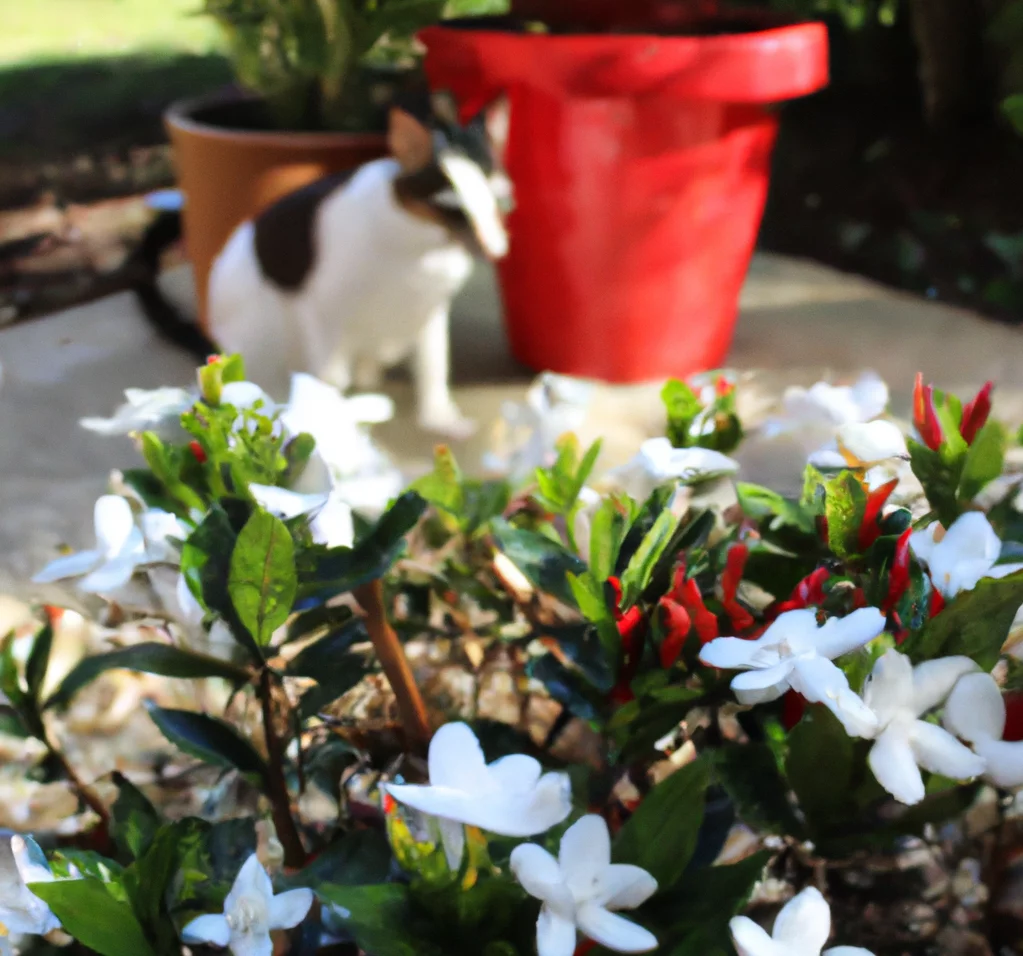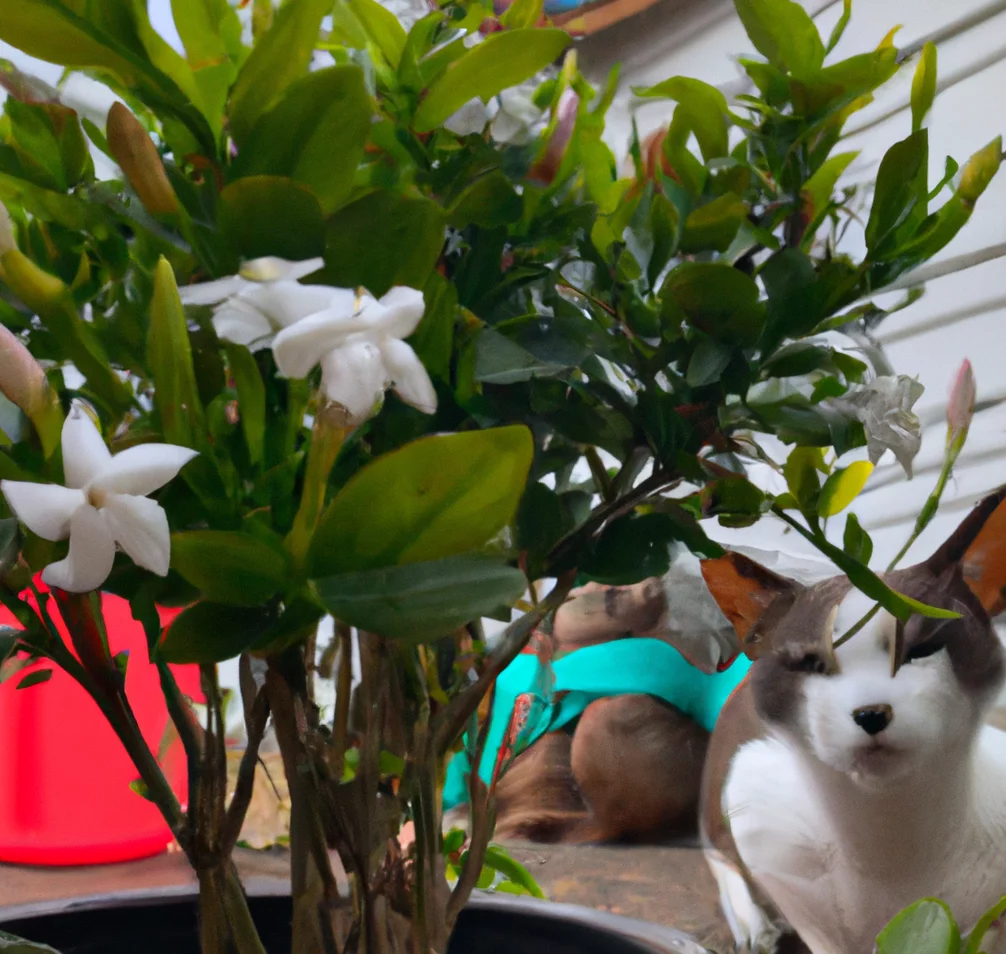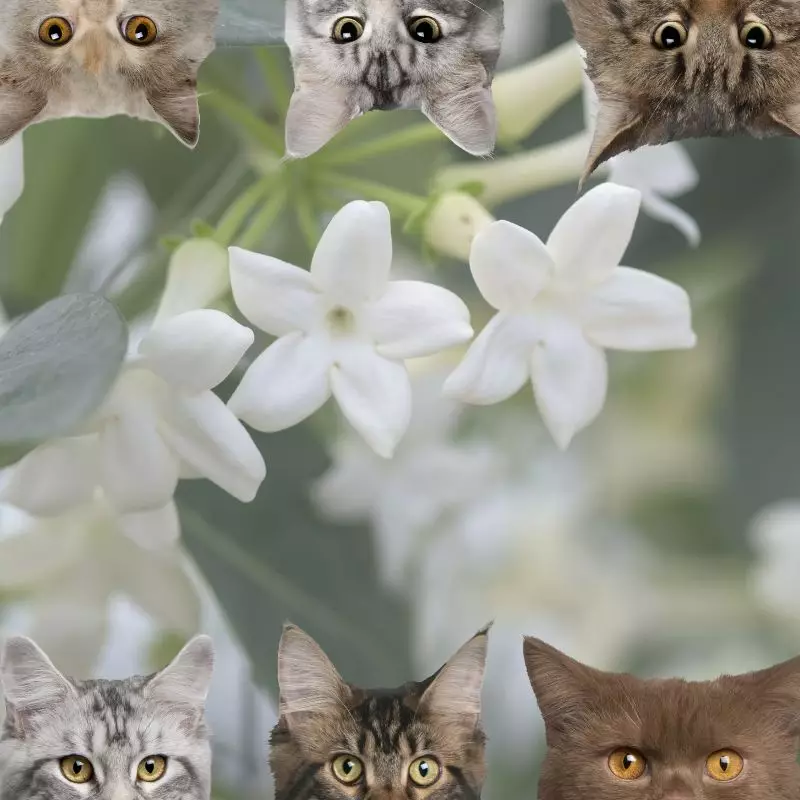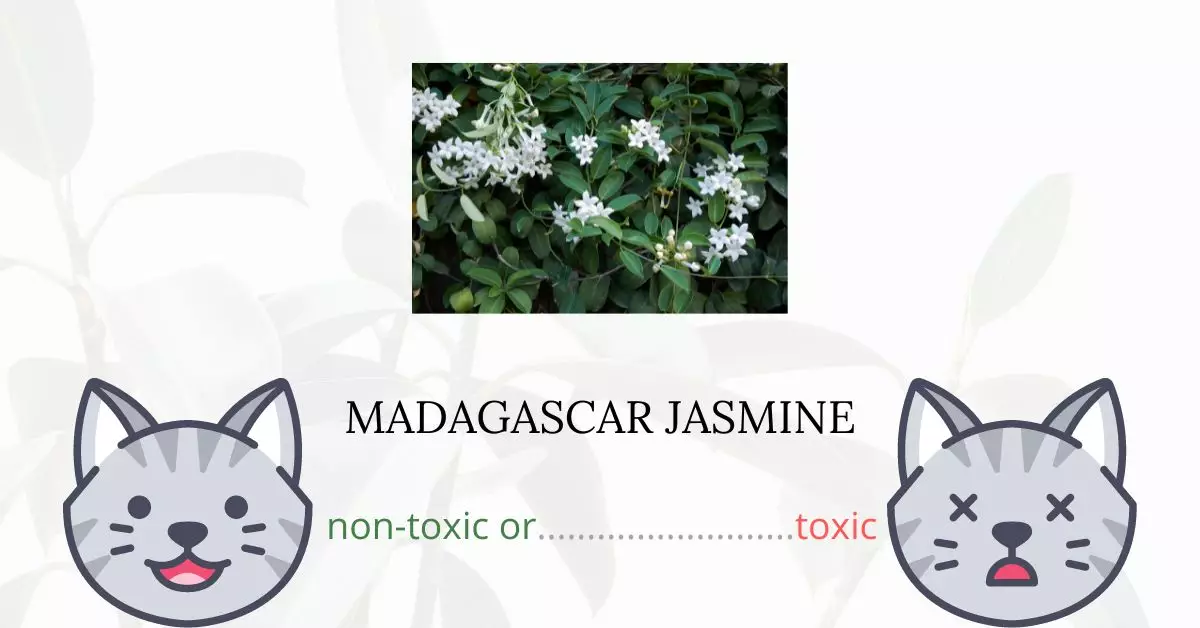Madagascar Jasmine is not toxic for cats. This popular house and garden plant, characterized by its leathery oval-shaped leaves and waxy, pure white flowers, poses no harm to our feline friends.
It’s essential for pet owners to be informed, and in order to ensure the accuracy of this article, we collaborated with a team of experienced DVMs (doctors of veterinary medicine). Their insights, coupled with extensive research from high-authority websites such as the ASPCA and PetMD, allow us to provide precise and up-to-date information about the potential risks associated with various plants, focusing on Madagascar Jasmine in this context.
Can Cats Eat Madagascar Jasmine?

The ASPCA determined Madagascar Jasmine to be safe for cats. Consuming a small amount won’t have any negative effects. Any animal, including cats, who eat a plant that is not typically part of their diet may feel uncomfortable. While the majority of pets don’t regularly ingest plants, some plants can cause allergies or sensitivities.
It’s also worth noting that pesticides and fertilizers might include hazardous substances that can poison your kitty pals. As a responsible cat parent, be sure to use only natural plant care products on your plants.
What is Madagascar Jasmine?

The Madagascar Jasmine is a lovely kind of climbing vine that is grown both outdoors and indoors of its clusters of fragrant blossoms and glossy oval-shaped leaves. Wax Flower, Bride’s Flower, and Hawaiian Wedding Plant are some other names for it.
The climate of this species, which is native to Madagascar, ranges from sub-tropical to tropical and consists of hot, humid weather with rain and colder spells. Jasmine is frequently used to make wreaths and bouquets for weddings. This is due to the tiny, lovely white blossoms, which match the desired all-white bridal appearance, and the stems’ exquisite twisting around wire hooping. It only takes one tiny plant to fill the space with its deliciously sweet aroma.
Known for its scientific name Stephanotis floribunda, this is the only species grown as a house plant to any extent among some other 15 known species.
Keeping Cats Away From Madagascar Jasmine

Allow them to have their own plants. Cats can enjoy a variety of cat grasses in addition to the traditional catnip plant, which is also available. With catnip, you cannot go wrong.
Cats who enjoy soiling indoor plant pots should either have access to the soil blocked off or have the soil be unpleasant to step in. Fill the soil with rocks. Cats like the feel of mud and sand on their paws to rocks. When getting ready for potty time or covering their waste, they are less comfortable digging through.
To prevent your cat from pooping in your plants, place some tin foil around the plant or even in the pot over the dirt. Cats truly detest it. Tin foil is typically avoided by cats like the plague, thus this is an excellent method of deterring cats from almost anything.
Plants to Avoid For Your Cats
If you are a cat owner and unsure if the plants growing in your yard are harmful to your cats, check out this list of toxic plants for cats. You can also check our list of non-toxic plants for cats.





